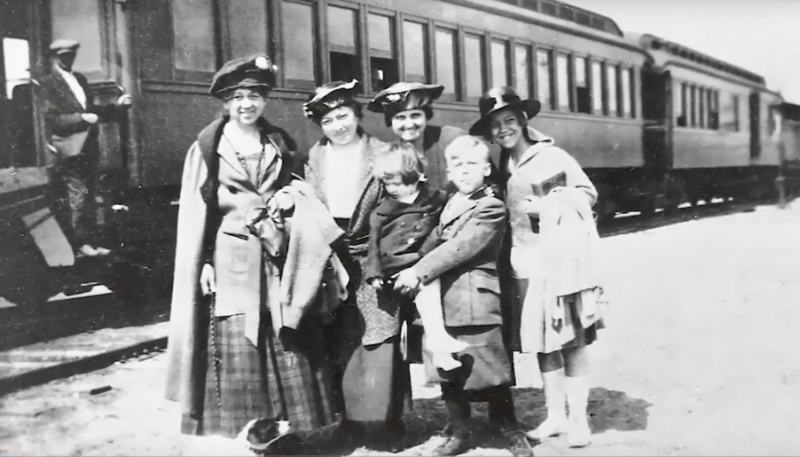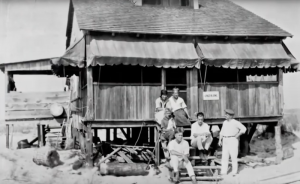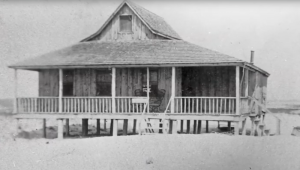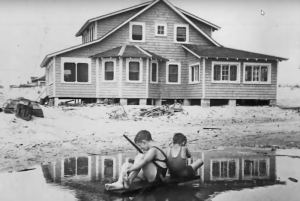William Burbank recalls family’s 100-year history in Dewey
William Burbank doesn’t remember his exact age when he first stepped foot in the ocean off Dewey Beach, but he knows he was a baby.
Dating back to his grandparents, Burbank’s family started visiting Dewey Beach in the early 1900s and began calling the town its summer home in the early 1920s, when they bought an acre of oceanfront property for $225, he said. It was in the area of what is now Van Dyke Avenue, he said.
“It was a good deal then. It would be an incredible deal now,” said Burbank, whose recounting of his childhood trips to Dewey was recorded as part of the Rehoboth Beach Museum’s oral history program. The museum began the project roughly 15 years ago and has logged more than 100 interviews. Periodically, the museum revisits these interviews through a program called In Their Own Words.
Burbank said his grandparents were from Baltimore and were drawn to the area because of Rehoboth’s connection to the Methodist church – the city was founded as a Methodist summer retreat in the early 1870s. However, he continued, they chose to settle in Dewey Beach.
Dewey was much more rugged, said Burbank. There was no running water or utilities, but it had the ocean, he said.
Burbank, 72 at the time of the interview, said he remembers Dewey beginning to change when he was a teenager, after the second span of the Chesapeake Bay Bridge was built. It went from being a backwater, rural community to one with more and more groups of people, he said.
With a small smile, Burbank recalled a way of life that wasn’t always up to the environmental standards of today. For example, to help control mosquitos, he said he remembers the whole community being gassed, which he assumed was probably DDT. That’s not good for the birds and other wildlife, he said.
Other examples included digging trash holes in the yard and pulling dune grass for money so his grandmother’s oceanfront view wasn’t blocked.
Today, that’s the exact opposite of what should be environmentally done, he said about pulling the grass.
Burbank said he always enjoyed campfires on the beach and eating the local delicacies – including scrapple.
“It’s an acquired taste. It’s better than Scottish haggis, but not much,” he said.
The museum’s next historical presentation is slated for 7 p.m., Thursday, Oct. 28, in the Grove Park pavilion. It will tell the story of the Faithful Steward, a ship that sank off the Delaware coast in 1785. There were 250 passengers; roughly half of them died.
Marcos Salaverria, historic character interpreter and Lewes Historical Society director of education, will relate the tragedy of this wreck through a historic reading of a firsthand account from a survivor.
The museum is open for in-person visits. Museum hours are 9 a.m. to 3 p.m., Friday; 9 a.m. to 1 p.m., Saturday and Sunday; and closed Monday through Thursday. For more information on the museum, 511 Rehoboth Ave., or to register for an In Their Own Words program, go to rehobothbeachmuseum.org or call 302-227-7310.
Established as a town in 1981, Dewey Beach is celebrating its 40-year anniversary. Cape Gazette reporter Ellen Driscoll published a story on the town history in the Oct. 8 edition, which can be found online at Dewey Beach: ‘A Way of Life’ for 40 years.


























































